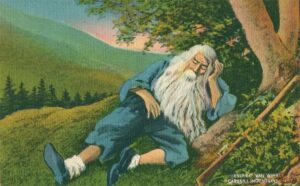
Everyone feels tired now and then. But, after a good night’s sleep, most people feel refreshed and ready to face a new day. If you continue to feel tired for weeks, it’s time to see your doctor. He or she may be able to help you find out what’s causing your fatigue. In fact, your doctor may even suggest you become more active, as exercise may reduce fatigue and improve quality of life.
Sometimes, fatigue can be the first sign that something is wrong in your body. For example, people with rheumatoid arthritis, a painful condition that affects the joints, often complain of fatigue. People with cancer may feel fatigued from the disease, treatments, or both.
Many medical problems and treatments can add to fatigue. These include:
Taking certain medications, such as antidepressants, antihistamines, and medicines for nausea and pain
Having medical treatments, like chemotherapy and radiation, or recovering from major surgery
Infections
Chronic diseases like diabetes, heart disease, kidney disease, liver disease, thyroid disease, and chronic obstructive pulmonary disease (COPD)
Untreated pain and diseases like fibromyalgia
Anemia
Sleep apnea and other sleep disorders
Managing a health problem may make the fatigue go away. Your doctor can help.
Can emotions cause fatigue?
Are you fearful about the future? Do you worry about your health and who will take care of you? Are you afraid you are no longer needed? Emotional stresses like these can take a toll on your energy.
Not getting enough sleep can also contribute to fatigue. Regular physical activity can improve your sleep. It may also help reduce feelings of depression and stress while improving your mood and overall well-being. Yoga, meditation, or cognitive behavioral therapy could also help you get more rest. Talk with your doctor if your mental well-being is affecting your sleep or making you tired.
Some lifestyle habits can make you feel tired. Here are some things that may be draining your energy:
Staying up too late. A good night’s sleep is important to feeling refreshed and energetic. Try going to bed and waking up at the same time every day.
Having too much caffeine. Drinking caffeinated drinks like soda, tea, or coffee late in the day can keep you from getting a good night’s sleep. Limit the amount of caffeine you have during the day and avoid it in the evening.
Drinking too much alcohol. Alcohol changes the way you think and act. It may also interact with your medicines.
Being bored can make you feel tired. That may sound strange, but it’s true. If you were very busy during your working years, you may feel lost about how to spend your time when you retire. When you wake up in the morning, you may see long days stretching before you with nothing planned. It doesn’t have to be that way.
Engaging in social and productive activities that you enjoy, like volunteering in your community, may help maintain your well-being. Think about what interests you and what skills or knowledge you have to offer and look for places to volunteer.
Try to avoid long naps (over 30 minutes) late in the day. Long naps can leave you feeling groggy and may make it harder to fall asleep at night.
